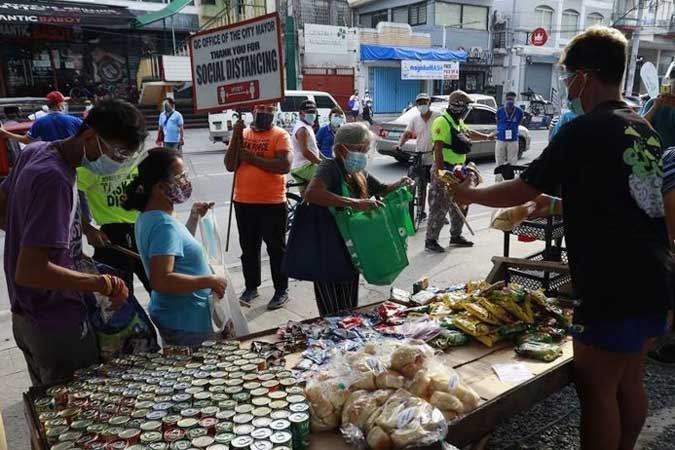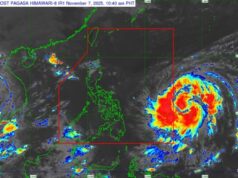Cash aid proponent says community-led food banks a valuable part of pandemic response

THE LEGISLATOR who is pushing for an across-the-board cash aid for Filipinos supports the emergence of community pantries, saying these initiatives contribute to an “all hands-on deck” response to the coronavirus pandemic.
“Let the private sector continue to do what they’re doing well — such as setting up and maintaining community pantries. The roles of the private sector and the national government in battling the effects of the pandemic should always be complementary,” Marikina City Representative Stella Luz A. Quimbo said in a Viber message to BusinessWorld.
Ms. Quimbo is the key proponent of the Bayanihan to Arise as One Act or House Bill 8628 alongside House Speaker Lord Allan Jay Q. Velasco. The measure — which would provide P420 billion to help families and businesses — is pending before the House Committee on Appropriations and will be a priority when Congress resumes sessions this week.
The proposed law will grant P2,000 cash aid to each Filipino regardless of income status as everyone has been affected by the pandemic, Ms. Quimbo said in a previous television interview.
Asian Institute of Management economist John Paolo R. Rivera agrees on the value of community pantries and how these can teach the government on strategizing aid disbursements efficiently during the crisis.
“Government can learn from this through the reminder community pantries convey — ensure that resources are immediately distributed to those most in need, to those in the fringes of society. Bureaucratic processes do not work in all situations,” Mr. Rivera said in a Viber message.
The country’s first community pantry was set up in Quezon City by Anna Patricia Non in mid-March, and has since been replicated in many other parts of the country. The give-and-take idea is simple: Allow people to get goods according to their needs while encouraging those who have the resources to contribute what they can.
Earlier this month, President Rodrigo R. Duterte said people should just wait for government aid instead of lining up at community pantries, which could pose health threats.
Ms. Quimbo, on the other hand, said while the government continues to carry out its role in addressing the impact of coronavirus disease 2019 (COVID-19) to Filipino lives and livelihood, officials should at the same time support community pantry initiatives as these provide for the needs of the vulnerable.
“Government can encourage more private sector participation by providing community pantry efforts with security, orderliness, and even supply sourcing. Government media oracles can also announce where donations can be made,” she said.
Mr. Rivera said support to these food banks does not mean relaxing on the delivery of social aid, which is primarily the government’s responsibility. “Government has all the machinery. It should not settle on community pantries that are driven by donations,” he said.
He added that cash is still the more effective means for helping the most vulnerable groups.
“Cash aid is more effective in assisting poor households because it gives them the liberty to buy their needs rather than a basket that may contain things they do not need, which are wasteful. Cash aid is also effective in stimulating the economy because it also feeds in through businesses,” Mr. Rivera said. — Luz Wendy T. Noble



